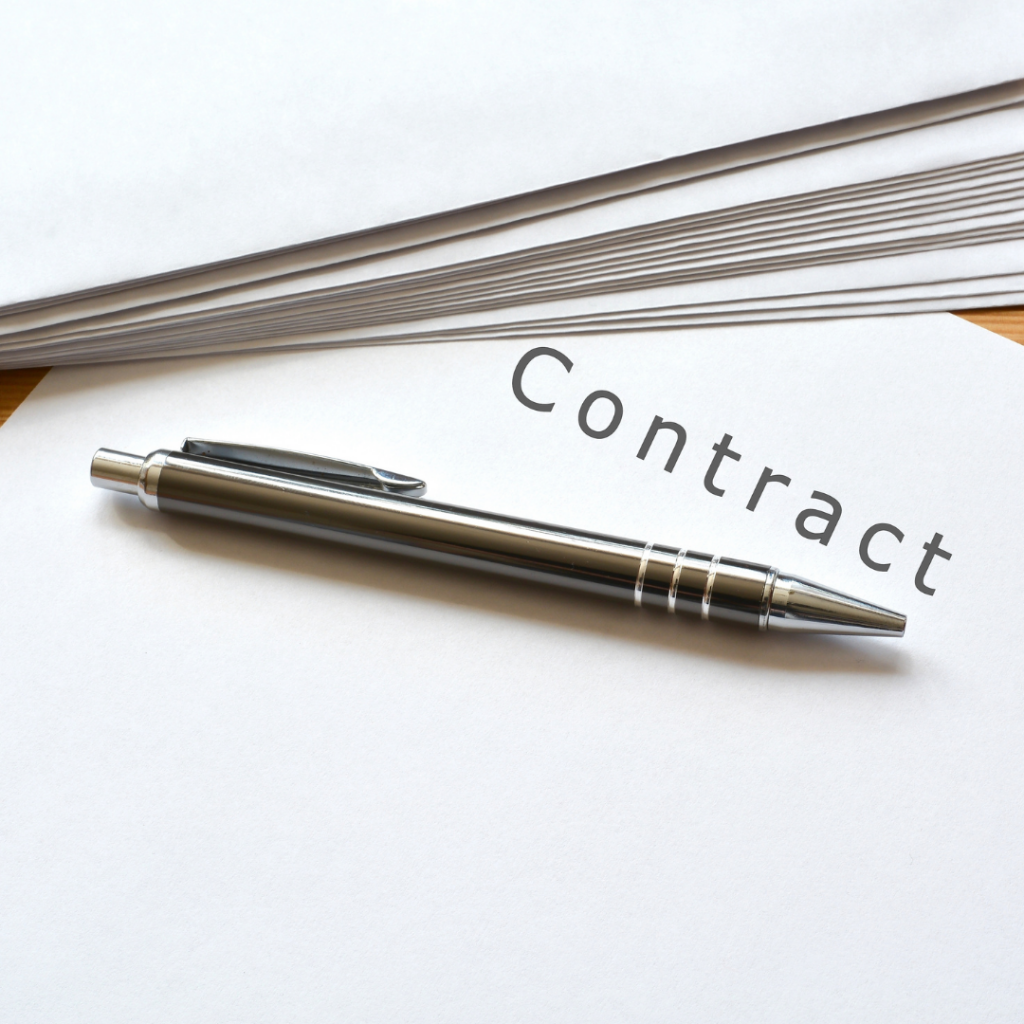Purchasing a property is a huge decision, not just financially but also emotionally. A cooling-off period protects you from rushing in and making the wrong choice. It’s an important piece of legislation that protects people from making hasty decisions.
There is a lot of misinformation out there. In this article I answer the most frequently asked questions that I get about cooling off periods. You’ll also learn what really happens if you change your mind during the cooling off period.
What is a cooling off period?
When buying property in NSW you have the right to a cooling off period after signing of the contracts. A cooling-off period is designed to allow you time to do your due diligence such as arranging a pest and building inspection or finalise your finance.
The other piece of your due diligence that occurs during the cooling off period will be having your solicitor or conveyancer look over the contract. They will point out any concerns and request adjustments to the contract on your behalf.
Finally this time is also a time to reflect on your decision and ensure it’s the right property for you. Does it suit your family and your lifestyle?
Cooling off period NSW
When buying a property in NSW the cooling off period commences after the contracts have been exchanged. Exchanging of contracts takes place after both parties have each signed their copy of the Contract of Sale and the buyer has paid at least a .25% ( ¼ of a percent of the purchase price).
The cooling off period allows the buyer to change their mind and rescind their offer after signing a contract. The standard cooling-off period in NSW is generally 5 business days. However it is not at all uncommon for cool off periods to run to 10 days and sometimes a little longer. If a buyer wants to extend past the standard 5 days then the seller needs to have agreed prior to 5pm on the last day.
At 5pm on the final day the SOLD sticker can be put up.
Property sales contract between seller and buyer
PLEASE NOTE: Only a buyer is entitled to a cooling off period. Once the seller signs the contract and the contracts have been exchanged, the seller is locked in and is legally bound to the buyer. Even if someone else comes in with a higher offer or better terms, they cannot accept.

Real estate agents and the cooling off period
As a buyer if you need to extend the cool off for any reason you should be open and honest with the real estate agent. Many deals turn sour due to poor communication and misunderstanding.
If your agent is aware of any unavoidable delays he or she can keep the owner up-to-date so that there are no unexpected surprises along the way. The agent can also liaise with your broker and legal rep so that all parties can navigate to an ideal outcome.
Buying and selling can be an emotional time for all parties and clear communication is a way to minimise the stress levels for all involved.
Exchange of Contracts deposit.
If you rescind the contract during the cooling off period you will likely lose your .25%. It is up to the seller (and not the agent) if they keep it, and most of them will keep it.
Though I’ve met some lovely vendors in my time who have refunded it to the buyer due to circumstances beyond the buyers control.
What happens if I change my mind during the cooling off period?
Changing your mind during the cool off – Cancellation of contracts – How much do I stand to lose if I pull out during the cooling-off period.
You will lose .25% of the purchase price, which is one quarter of one percent. For example if the sale price is $800,000 then on the signing of the contract you would put down $2000. If you don’t proceed you will be $2000 out of pocket plus whatever you may have spent on a pest and building inspection or other related costs.
Why would I run the risk of losing my deposit?
Once your offer is accepted and you have signed the contract the property is no longer able to be purchased by anyone else. In a hot market this is the surest way of ensuring that you don’t lose out to someone who might make a higher offer.
Is it possible to change my mind without financial consequences?
The only time that you are legally entitled to get your deposit money refunded after signing the contract is if you change your mind prior to the exchange of contracts. As mentioned above it is the right of the seller to keep your money if you rescind after contracts have exchanged regardless of your reasons for doing so.
Some of the more common reasons that you may pull out of a property contract are:
- an adverse pest and building report
- inability to secure appropriate finance
- you’ve changed your mind
Things to consider before rescinding your contract
Before pulling out of a cooling off period it is best to get advice from your solicitor or conveyancer along with the real estate agent that is selling the property. Voice your reasons for pulling out and see if other options may be available to you.
In the case of an adverse pest and building inspection be sure to:
- read the full inspection report, not just the highlighter or summay sections, and
- speak to the builder that did the inspection and clarify any issues/concerns
Oftentimes what is considered normal wear and tear takes the inspector several pages to document. This has the effect of making it look like the property is riddled with problems. More often than not, this is not the case.
If you still love the home but are concerned about major costs for repairs you may wish to speak to the agent about renegotiating the purchase price.
Disclaimer: This is a general overview and I urge you to purchase an inspection for any property that you are considering purchasing.
Solicitor exchange V Real Estate Agent exchange

When it comes to signing on the dotted line you have two choices:
- Agent exchange, or
- Solicitor exchange
Here is a summary of the pros and cons of each.
Solicitor Exchange – once you agree on price the agent will collect your personal details such as name, address, and your solicitor or conveyancer details. These details are sent to your legal representative on what is known as a sales advice.
The sales advice and a copy of the contract are sent to the buyers solicitor. A duplicate copy of the sales advice and a copy of the contract are sent to the sellers (the vendor) solicitor.
You have not signed a contract at this stage. So although the owner has agreed to your offer they are not yet legally bound to sell it to you.
This means that if another buyer makes an offer with more attractive terms, or purchase price, the seller can choose to sell it to them. This is not the agent’s choice, it is the legal right of the seller in accordance with the current legislation.
Agent/Office Exchange – to protect yourself from this occurring you can exchange contracts with the real estate agent.
When choosing this option you will pay a deposit of .25% (one quarter of one percent) of the purchase price. You sign a copy of the contract. The agent then obtains the seller’s signature on a duplicate copy of the same contract.
Once both copies of the contract have been signed, dated and the .25% deposit paid then the contracts are deemed to be exchanged. You then enter a cooling off period as discussed above.
There is often a LOT of confusion with buyers around this process. The main thing to remember is that until you have signed a contract, and the owner has also signed (and the .25% deposit paid), the owner can still choose to sell the property to someone else.
From time to time you will see properties for sale with:
Under offer – this means price has been agreed to but contracts have not been signed yet.
Under contract – the owner is legally bound to sell it to the current buyer unless the buyer changes their mind within the cooling off period.
NOTE: Many people assume that the one contract is signed by both parties, it isn’t. Each party signs their own copy of the same contract.
Waiving your cooling-off rights
In rare circumstances a buyer decides to proceed on a purchase and they waive their cooling off rights. In cases such as this the buyer’s solicitor will have checked over the contract prior and advised the buyer of their obligations under the contract.
Before a real estate agent can exchange contracts without a cooling-off period their solicitor or conveyancer must have provided a 66W. A 66W is a form which states that they have explained to the buyer their legal obligations under the contract. The 66w certificate is signed by the buyers’ solicitor and inserted into the contract.
The other instance where a buyer waives their cooling off term is when a property sells under auction conditions.
In this blog post, we’ve learned the basics of what buyers rights and obligations are under a cooling off period in NSW. Just a reminder that a seller does not have any cooling-off rights once the contract of sale has been exchanged.
If you’re not ready to buy yet but need to sell first then you might want to learn more about the process of selling a house.

